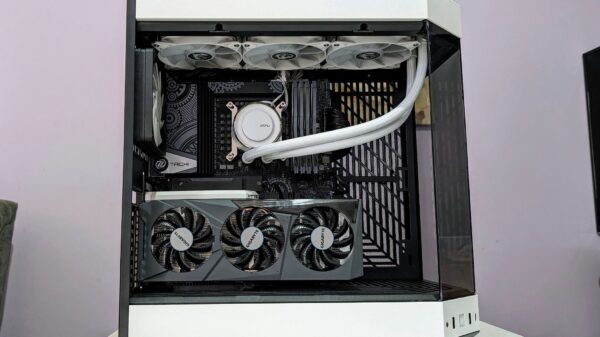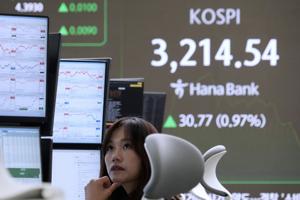World shares experienced a notable rise on Thursday, driven by optimism surrounding the recently announced tariff agreement between the United States and Japan. This deal, publicized on March 14, 2024, has sparked hopes for further trade agreements among major economies, which could bolster global trade dynamics.
In Europe, economic authorities are closely monitoring the implications of U.S. tariffs. The European Central Bank is expected to refrain from making additional interest rate cuts, opting to first assess the potential economic impact of the new tariffs. U.S. President Donald Trump has proposed a steep 30% tariff rate on certain goods imported from the European Union, although officials are negotiating this figure down to around 10%. Concurrently, European leaders are urging tangible progress in reducing the bloc’s significant trade deficit with China during a summit in Beijing with President Xi Jinping.
European stock markets reflected this positive sentiment. Germany’s DAX index rose by 0.8% to reach 24,430.74. In Paris, the CAC 40 climbed 0.2% to 7,862.52, while the UK’s FTSE 100 increased by 1% to 9,150.50. Futures for the S&P 500 showed a modest increase of less than 0.1%, whereas the Dow Jones Industrial Average futures fell by 0.3%.
The impact of Trump’s tariffs is a double-edged sword, risking inflation while potentially slowing economic growth. Despite this, many tariffs are currently paused, allowing room for negotiations that could lead to reduced tax rates. This week, Trump also announced trade agreements with the Philippines and Indonesia.
Japan’s Nikkei 225 index surged by 1.6% to 41,826.34, following a 3.5% jump the previous day, as traders reacted positively to the tariff agreement with the U.S. This deal will increase U.S. import duties on most Japanese exports to 15% from 2.5%, rather than the previously threatened 25%.
In Asia, other markets also saw gains. The Shanghai Composite Index advanced by 0.7% to 3,605.73, while Hong Kong’s Hang Seng index rose by 0.5% to 25,667.18. South Korea’s Kospi gained 0.2% to 3,190.45, following central bank data that revealed a robust 0.6% annual growth rate in the last quarter, driven by strong private consumption and exports. Australia’s S&P ASX 200 dipped by 0.3% to 8,709.40, while Taiwan’s Taiex added 0.2%. India’s BSE Sensex, however, lost 0.7% during the session.
Analysts noted the prevailing optimism across Asian equities. Stephen Innes from SPI Asset Management commented, “Asian equities caught another updraft, rising for a sixth straight session, as whispers of broader trade accords scattered across the tape like migrating birds sensing the storm has passed.” He added that traders are eagerly anticipating the next potential deal, with Europe, India, and China all in the mix.
Despite the encouraging market movements, the Nomura Group warned that the tariff rates established by the U.S. for Indonesia and the Philippines, set at 19%, pose risks to their growth outlooks. The group estimated that these tariffs could reduce GDP growth by 0.2 percentage points in Indonesia and 0.4 percentage points in the Philippines.
On the U.S. front, stocks reached new heights following the trade agreement between the world’s largest economies. The S&P 500 rose by 0.8%, marking an all-time high. The Dow Jones Industrial Average gained 507 points, or 1.1%, while the Nasdaq composite increased by 0.6%, also achieving a record.
Currently, the U.S. economy appears resilient, with tariffs having a lesser impact than anticipated on consumer prices. In the commodities market, U.S. benchmark crude oil rose by $0.90 to $66.15 per barrel, while Brent crude increased by $0.84 to $69.35 per barrel. The U.S. dollar strengthened against the Japanese yen, climbing to 146.60 from 146.51. The euro, however, slipped to $1.1751 from $1.1777.
As the global economy continues to adapt to shifting trade policies, investors remain watchful for further developments that could shape the market landscape in the coming weeks.






































































